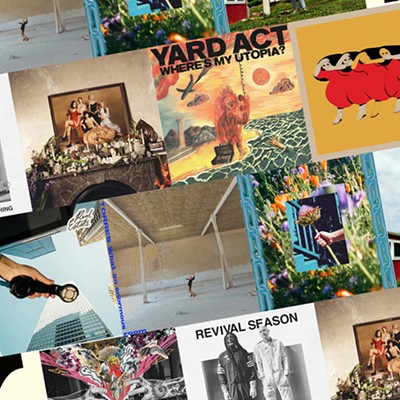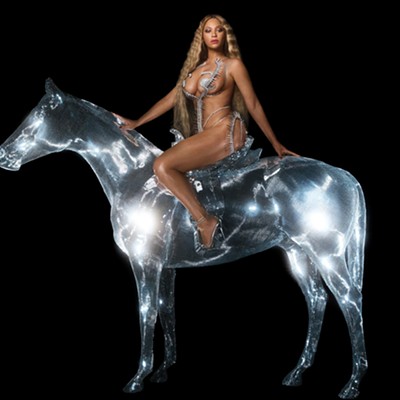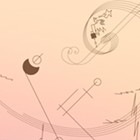American Pastoral
[
{
"name": "Broadstreet - Instory",
"insertPoint": "5",
"component": "25846487",
"requiredCountToDisplay": "5"
},{
"name": "Broadstreet - Instory",
"insertPoint": "10",
"component": "25846487",
"requiredCountToDisplay": "10"
},{
"name": "Broadstreet - Instory",
"insertPoint": "15",
"component": "25846487",
"requiredCountToDisplay": "15"
},{
"name": "Broadstreet - Instory",
"insertPoint": "20",
"component": "25846487",
"requiredCountToDisplay": "20"
}
]
by LUKE BAUMGARTEN & r & & r & & lt;span class= & quot;dropcap & quot; & H & lt;/span & annah Reader doesn't sleep well. Not at night, anyway. The sleeplessness frustrates her. She talks about it with wide eyes and through gritted teeth. In previous bouts of insomnia, she's been able to use that time to write songs, tinking quietly on the piano in her mother's living room in Los Angeles as the rest of the house slept, turning her frustration and longing for sleep and everything else into churning piano melodies that conjure clouds and blankets of darkness, the kind found in room corners, in forest floors and in spoiled love.
Sometimes they come rolling out, frenzied and searching. Other times they just simmer, soft plaints to love, its prospect and its loss bubbling around, growing, changing, dying.
Her best songs have elements of both. Long and dynamic (all her songs tip four minutes; one touches 11), these compositions come hurtling out as tales of flight packaged inside feverish dreams. "Fu Inle," which draws its name from the rabbit language in Richard Allen's classic children's novel Watership Down, follows the narrative course of the book, fitting short feelings of safety and hope into bubbles of lyrics in between long swatches of panicked, dynamic piano. The words represent home; the piano represents its destruction and the scramble to recreate it.
In Reader's hands, this story of rabbits becomes one of transient happiness and yearning, of hopes beaten back by the harshness of life only to sprout again later. Hope takes different forms each time, becoming more modest, then bruised by experience, then tempered by resolve.
When things look bleakest, the rabbits of Reader's retelling turn to traditions, stories of salvation. "There will be a grass so green / for he has come to show the way / will you follow him / and come and meet me? / and the clover will stretch all over the hills and on forever / and you eat as much as you like and we will dance by the moonlight."
"It hit me so hard," Reader says of the first time she read Watership Down. "Lines stood out about eternity," she says, about the rabbit god the characters put their faith in. "I was raised in a pretty strict Christian household," she says. "I've spent a lot of time breaking from that and finding the things I really believe in."
The search home, too is a recurring theme in both her art and her life. The brief glimpses she offers into her life paint a picture of turmoil and transience. Supporting herself more or less completely since she was 15, Reader has spent time living here and there -- sometimes with her mother, sometimes as a live-in nanny for yuppies whom she reviled. Growing up young in as expensive a place as her hometown of Los Angeles, though, she was never able to carve out a place that was just hers.
This translates into an uncanny ability to create a sense of home in her lyrics without much mention of physical dwellings. She builds them out of the bonds between people -- the psychic connections that bind us. Then, though, once we've settled in, she exposes the flaws in our homes' construction. The cracks in the foundation. The unsteadiness and uncertainty. The prospect of collapse. Home is in family -- those we're born with sometimes, but more often those we choose to bring in as part of our brood -- and in memory, but people die or leave and memories fade, so for Reader, home itself becomes ephemeral.
Her music is not radio-ready. She doesn't want it to be. Hannah Reader may never write a three-minute song. Still, she says she tends to cut big swaths of lyrics before finishing a song. She explains the process like an effort to pare down the complexity of her search, to make it more understandable. It's not surprising that the only song she never cut lyrics from, "In the Meantime" (which clocks in at 11 minutes), contains what feels like the clearest insight into her feelings of upheaval. "I'm a coward when it comes to pain or transition," she sings over a simmering melody, "or those things we all speak of but I can't quite envision."
& lt;span class= & quot;dropcap & quot; & R & lt;/span & eader hasn't found a suitable piano since moving to Spokane from Los Angeles in February, so her sleepless nights have less music. Her brother, whom Reader moved in with, doesn't have one. Stalking the streets one night, she stumbled upon the baby grand at the old Ridpath, and the hotel's skeleton staff let her play. She treats that, though, as the kind of serendipitous adventure that's best not repeated, seeming to worry the second and third and fourth trips would lose a bit of the first one's magic. Long term, she's in the market for a "really nice keyboard," but for now, she sits in her little borrowed room in her brother's bed and breakfast and tamps around on a small keyboard. "It sucks," she says, "but I can figure out little melodies ... and work them out later."
Reader still lives in a state of impermanence. "It's a bed and breakfast," she says. "When people check in, I have to check out." But the move has done her good. "L.A. is like a zombie land. Most people are trying to get a record deal. I just wanted to work on something that meant something." As a result, she had a hard time finding people to work with there. "Up here," she says, "it's like, 'I play the violin,' 'I play the drums,' 'I play the banjo.' It's awesome."
A recent trip back to LA solidified the move. The old feelings returned. The insomnia got worse. "I was up for two days ... When I came back I was, like...." Reader takes a deep breath to illustrate the feeling. "No panic attacks up here," she says. "I don't want to kill anyone up here."
Despite not having one in her home, the piano situation is also better. "In L.A., there are only two places that have real pianos. They're out of tune and suck horribly," Reader says, motioning to the upright sitting in Empyrean's north corner. "It's really cool to have places like this with amazing pianos." She pauses, looks in the direction of the barista. "Do you think he'd mind if I just came in here and played some days?"
My Pinky Has a Name (Hannah Reader's side project with Bobby Hattenburg) with Monuments, Beluga and Retard Strength at the Zombie Room on Saturday, May 17, at 9 pm. Price TBA. Call 456-4515. Hannah Reader with Bridget Vogel and Mark Allen at Empyrean on Friday, May 23, at 7 pm. Price TBA. Call 838-9819.
Sometimes they come rolling out, frenzied and searching. Other times they just simmer, soft plaints to love, its prospect and its loss bubbling around, growing, changing, dying.
Her best songs have elements of both. Long and dynamic (all her songs tip four minutes; one touches 11), these compositions come hurtling out as tales of flight packaged inside feverish dreams. "Fu Inle," which draws its name from the rabbit language in Richard Allen's classic children's novel Watership Down, follows the narrative course of the book, fitting short feelings of safety and hope into bubbles of lyrics in between long swatches of panicked, dynamic piano. The words represent home; the piano represents its destruction and the scramble to recreate it.
In Reader's hands, this story of rabbits becomes one of transient happiness and yearning, of hopes beaten back by the harshness of life only to sprout again later. Hope takes different forms each time, becoming more modest, then bruised by experience, then tempered by resolve.
When things look bleakest, the rabbits of Reader's retelling turn to traditions, stories of salvation. "There will be a grass so green / for he has come to show the way / will you follow him / and come and meet me? / and the clover will stretch all over the hills and on forever / and you eat as much as you like and we will dance by the moonlight."
"It hit me so hard," Reader says of the first time she read Watership Down. "Lines stood out about eternity," she says, about the rabbit god the characters put their faith in. "I was raised in a pretty strict Christian household," she says. "I've spent a lot of time breaking from that and finding the things I really believe in."
The search home, too is a recurring theme in both her art and her life. The brief glimpses she offers into her life paint a picture of turmoil and transience. Supporting herself more or less completely since she was 15, Reader has spent time living here and there -- sometimes with her mother, sometimes as a live-in nanny for yuppies whom she reviled. Growing up young in as expensive a place as her hometown of Los Angeles, though, she was never able to carve out a place that was just hers.
This translates into an uncanny ability to create a sense of home in her lyrics without much mention of physical dwellings. She builds them out of the bonds between people -- the psychic connections that bind us. Then, though, once we've settled in, she exposes the flaws in our homes' construction. The cracks in the foundation. The unsteadiness and uncertainty. The prospect of collapse. Home is in family -- those we're born with sometimes, but more often those we choose to bring in as part of our brood -- and in memory, but people die or leave and memories fade, so for Reader, home itself becomes ephemeral.
Her music is not radio-ready. She doesn't want it to be. Hannah Reader may never write a three-minute song. Still, she says she tends to cut big swaths of lyrics before finishing a song. She explains the process like an effort to pare down the complexity of her search, to make it more understandable. It's not surprising that the only song she never cut lyrics from, "In the Meantime" (which clocks in at 11 minutes), contains what feels like the clearest insight into her feelings of upheaval. "I'm a coward when it comes to pain or transition," she sings over a simmering melody, "or those things we all speak of but I can't quite envision."
& lt;span class= & quot;dropcap & quot; & R & lt;/span & eader hasn't found a suitable piano since moving to Spokane from Los Angeles in February, so her sleepless nights have less music. Her brother, whom Reader moved in with, doesn't have one. Stalking the streets one night, she stumbled upon the baby grand at the old Ridpath, and the hotel's skeleton staff let her play. She treats that, though, as the kind of serendipitous adventure that's best not repeated, seeming to worry the second and third and fourth trips would lose a bit of the first one's magic. Long term, she's in the market for a "really nice keyboard," but for now, she sits in her little borrowed room in her brother's bed and breakfast and tamps around on a small keyboard. "It sucks," she says, "but I can figure out little melodies ... and work them out later."
Reader still lives in a state of impermanence. "It's a bed and breakfast," she says. "When people check in, I have to check out." But the move has done her good. "L.A. is like a zombie land. Most people are trying to get a record deal. I just wanted to work on something that meant something." As a result, she had a hard time finding people to work with there. "Up here," she says, "it's like, 'I play the violin,' 'I play the drums,' 'I play the banjo.' It's awesome."
A recent trip back to LA solidified the move. The old feelings returned. The insomnia got worse. "I was up for two days ... When I came back I was, like...." Reader takes a deep breath to illustrate the feeling. "No panic attacks up here," she says. "I don't want to kill anyone up here."
Despite not having one in her home, the piano situation is also better. "In L.A., there are only two places that have real pianos. They're out of tune and suck horribly," Reader says, motioning to the upright sitting in Empyrean's north corner. "It's really cool to have places like this with amazing pianos." She pauses, looks in the direction of the barista. "Do you think he'd mind if I just came in here and played some days?"
My Pinky Has a Name (Hannah Reader's side project with Bobby Hattenburg) with Monuments, Beluga and Retard Strength at the Zombie Room on Saturday, May 17, at 9 pm. Price TBA. Call 456-4515. Hannah Reader with Bridget Vogel and Mark Allen at Empyrean on Friday, May 23, at 7 pm. Price TBA. Call 838-9819.
















